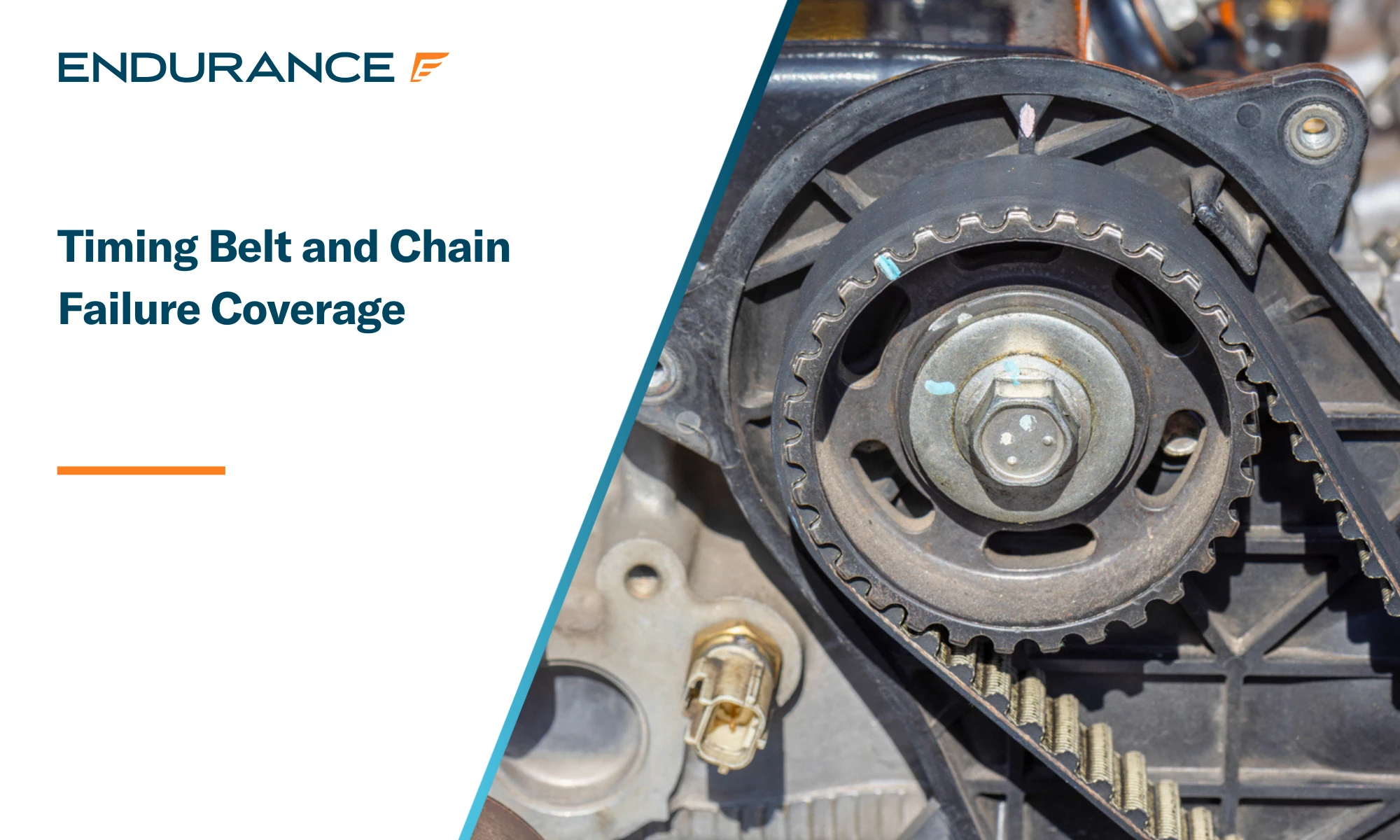
Timing Belt & Chain Replacement: Save Thousands with Extended Warranty Coverage
Timing belts and chains synchronize crucial engine components, with failures potentially leading to catastrophic damage. Understanding these components and having proper coverage can save you thousands in repair costs.
The Role of Timing Belts and Chains
Timing belts and chains synchronize the camshaft and crankshaft in your engine. The camshaft controls fuel and air flow while the crankshaft moves pistons. Timing chains, made of steel, typically last longer than rubber composite timing belts but cost more to replace.
Common Causes of Failure:
- Misalignment from uneven wear
- Under-tensioning causing tooth skipping
- Excessive load leading to tooth shear
- Damaged or worn pulleys
- Debris contamination
Warning Signs:
- Engine ticking noise
- Engine won't turn over
- Oil leaks near the motor
- Excessive black exhaust
- Irregular RPM behavior

Broken timing belt with chain damage
Repair Costs Without Coverage:
- Timing Belt Replacement: $597-$804
- Timing Chain Replacement: $1,693-$1,955
Protection Options
Extended warranties and vehicle service contracts (VSCs) can cover unexpected timing belt and chain failures. VSCs offer more flexibility, allowing repairs at any certified mechanic and often include additional benefits like:
- 24/7 roadside assistance
- Rental car reimbursement
- Trip interruption coverage

Mechanic working in repair shop
Maintenance Tips:
- Follow manufacturer's replacement intervals (typically 40,000-100,000 miles for belts)
- Replace timing chains between 80,000-100,000 miles
- Maintain proper engine oil levels
- Address unusual noises immediately
- Keep up with regular maintenance schedules

Professional headshot of smiling man
Remember: Preventive maintenance is crucial, but having proper coverage provides peace of mind against unexpected failures and costly repairs.
Related Articles

Complete Kia K5 Buying Guide: Features, Trims, and Pricing for 2024

